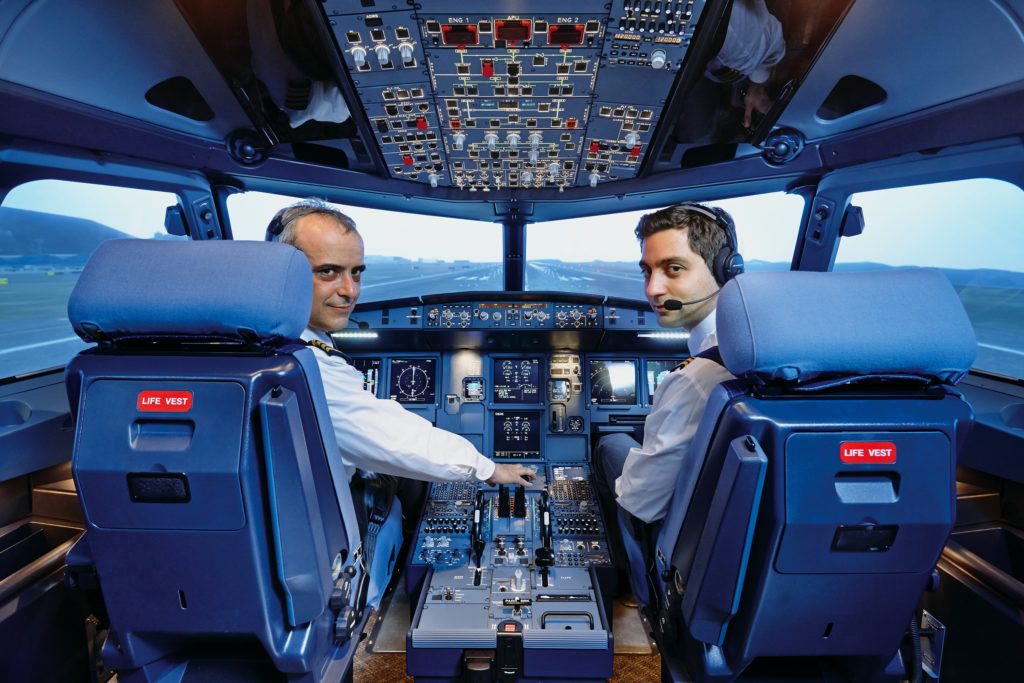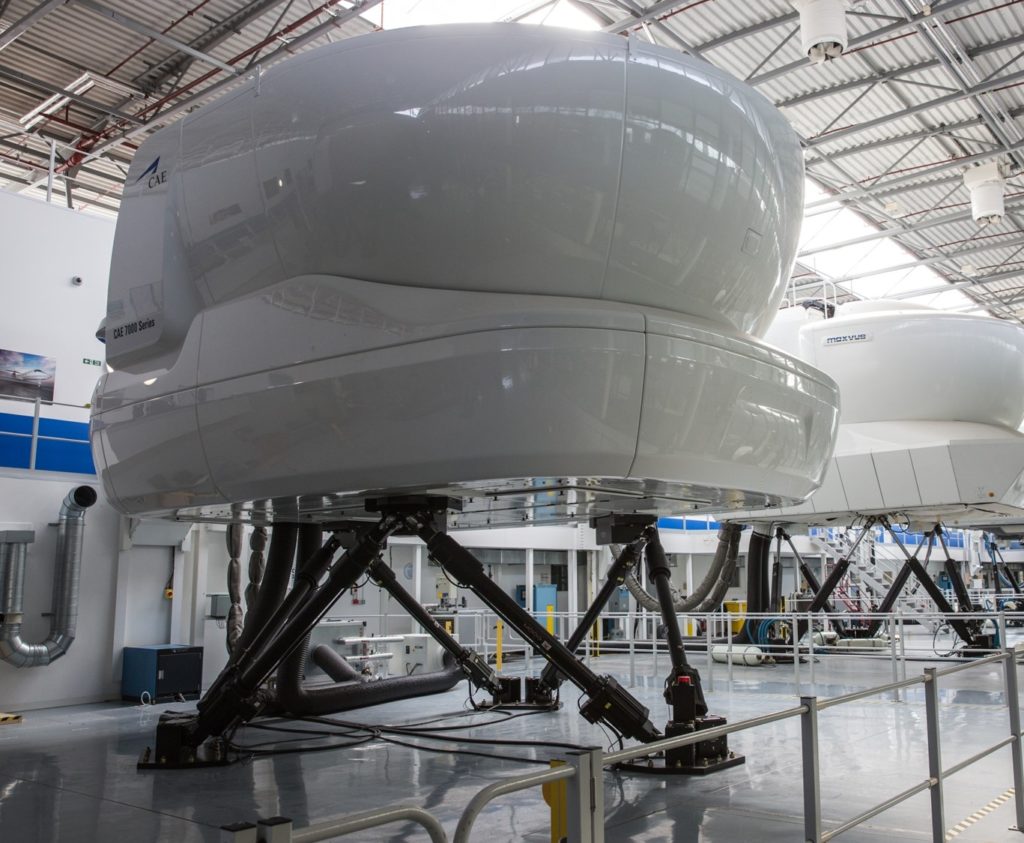Estimated reading time 6 minutes, 43 seconds.
CAE announced on Aug. 8, 2018, that it will be investing $1 billion over the next five years in innovation to stay at the forefront of the training industry.

One of the main objectives of the investment is to fund Project Digital Intelligence, a digital transformation project to develop the next generation training solutions for aviation, defence and security and healthcare.
In partnership with the Government of Canada and the Government of Québec, the project will allow CAE to continue to play a key role in making air travel safer, defence forces mission ready, and helping medical personnel save lives.
Other benefits include reducing aviation’s environmental footprint and addressing the worldwide demand for aircrews.
The Government of Canada and the Government of Québec will provide a combined investment of close to $200 million over the next five years ($150 million for Canada and $47.5 million for Québec).
Executives and employees of CAE were joined by Canadian Prime Minister Justin Trudeau and Premier of Québec Philippe Couillard for the announcement, which signals one of the most significant investments in innovation in the aviation training industry globally.

“As a powerhouse of innovation, CAE has been at the forefront of the training industry, including digital technology, for years,” said Marc Parent, president and chief executive officer of CAE.
“This strategic investment will take our company to the next level. By seizing new technologies such as artificial intelligence, big data, or augmented reality, as well as many others, and applying them to the science of learning, we will revolutionize the training experience of pilots, aircrews and healthcare professionals, as well as improve safety.
“We are committed to investing $1 billion over the next five years to help position CAE, Québec and Canada as leaders in digital technology.”
Project Digital Intelligence will transform CAE’s products and services to leverage digital technologies, ranging from big data to artificial intelligence, cloud-computing, cybersecurity and augmented/virtual reality.
CAE will develop its next-generation training technologies for aviation, defence and security, and healthcare, while making use of its extensive training network and data ecosystem. The project includes three major activity areas: advanced digital technology development, digital transformation of the training and user experience, as well as CAE innovation and collaboration facilities.
CAE will carry out Project Digital Intelligence in Canada, utilizing its research and development (R&D) laboratories, as well as its test and integration facilities.

As part of the project, CAE will develop an innovation campus in its Montreal site by transforming its workspaces, laboratories and processes to allow for greater innovation and collaboration.
Throughout Project Digital Intelligence, CAE will collaborate and codevelop technology solutions with small and medium companies from across Canada and will qualify more than 150 new innovative suppliers across the country.
CAE will also work with over 50 post-secondary institutions and research centres. The project is expected to create and maintain thousands of highly skilled jobs at CAE in Canada and in CAE’s Canadian-based supply chain.
CAE employs approximately 4,000 people in 18 locations across Canada and more than 5,000 in the rest of the world.
The government investments are subject to the finalization of definitive agreements.
“Today’s announcement is about creating high-skilled jobs in Canada today, while making sure Canada’s next generation of pilots, engineers, doctors, and nurses have access to some of the most advanced simulation tools and training programs in the world,” said Trudeau.
“With this funding, CAE will continue to raise the bar for training standards, from the cockpit to the operating room, and help drive the success of Canada’s aerospace industry.”
“CAE has today chosen to invest in the talent of Quebeckers to help it ensure its continuation as a leader in its sector,” said Couillard.
“We have turned Quebec into the best place to invest and prosper by creating a climate of confidence for businesspeople. We have made the know-how of Quebeckers into out greatest asset. Over the past four years we have provided Québec with a genuine boost. Through careful management of our public finances and the economy, we have given ourselves the means to make our aerospace industry more competitive, to speed up our shift to digital, to bolster Montréal’s expertise in artificial intelligence so as to make Québec a go-to destination for innovation.”
“Aerospace is one of the most innovative industries in Canada,” said Navdeep Bains, federal Minister of Innovation, Science and Economic Development.
“Our government’s investment in CAE will help maintain Canada’s global leadership in a sector critical to our economy. Canadians will benefit from more middle class jobs, more skills training opportunities, and innovative new products thanks in part to this investment.”
- CAE is a global leader in training for the aerospace and healthcare sectors, and the world’s leading supplier of flight simulators. Established in 1947, CAE has offices in 18 locations, and employs approximately 4,000 people across the country;
- Canada’s aerospace industry includes 700 firms, contributes close to $12.6 billion in GDP to Canada’s economy, and employs more than 85,000 Canadians;
- CAE will invest $1 billion in research and development by 2023, retrain 1,700 employees with new digital skills, and collaborate with 50 post-secondary institutions and research centres across Canada;
- The Government of Canada’s contribution to CAE includes an unconditionally repayable investment of $140 million and a non-repayable investment of $10 million.








